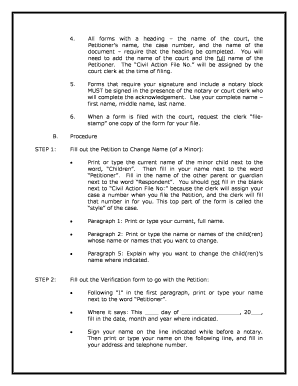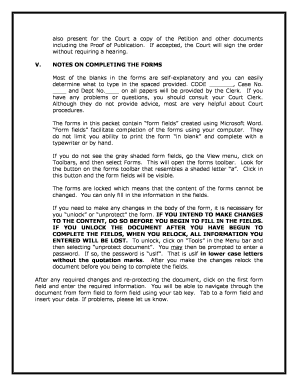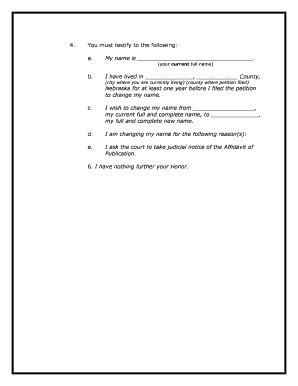State-Specific Forms for Name Change
Browse over 85,000 state-specific fillable forms for all your business and personal needs. Customize legal forms using advanced airSlate SignNow tools.
be ready to get more
Get legally-binding signatures now!
Is it legal to change your name in all states?
Yes, absolutely. Based on the 14th Amendment, you can do it legally in all states. The key term here is “legally.” It means that your intention of changing your name shouldn’t be linked to any criminal activity, such as debt evasion or fraudulent credit history clearance. In addition to that, you must follow the legislation and rules enforced by the state and the federal government and only use state specific-forms for the name change process.
What are the reasons for doing a name change?
Our name ties us closely to our identity. However, different circumstances sometimes force us to change our name. The most common reasons for a name change in the US and other countries are marriage and divorce. It’s not mandatory but mainly dictated by social convention. When it comes to a name change after life events, some people choose the path of least resistance (whatever takes the least amount of paperwork) or opt for the options that will be in their and/or their family members’ best interests. For instance, if a husband wants to take his wife’s name, he must consider that less than a dozen states will allow him to do so as a part of marriage. Other states require more paperwork and legal hoops to jump through. Many people decide to change their names to no longer be associated with their family members. It’s also a typical case for persons that would like to hide their identity to avoid being stalked or abused.
What basic requirements do I, as an adult, need to fulfill for a name change in the US?
- You need to be a US citizen and in some cases, meet residence requirements based on state laws.
- Your age needs to be over 18. In some states, over 19.
- You can’t be accused of a crime or fraud.
- You can provide solid grounds for your intention to change your name.
Do I need to announce my name change in a newspaper?
The answer is yes and no, depending on your case. As soon as you file a petition for a name change with your court, you must publish your request in the local newspaper for the sake of fraud or crime prevention. However, there are certain legal and personal circumstances when you’re allowed to skip this step and avoid making your request a matter of public record. It applies to people under state witness or confidentiality programs or victims of sexual assault, domestic violence, etc. In this case, the filer needs to provide convincing reasons and ask the court to waive this requirement.
What do I need to do after I change my name?
After the court hearing, you will be issued an order, following which you need to update records in government and non-government entities. As for the first ones, you’re most likely to be required to provide legal proof of a name transition. For others, it will be sufficient to inform them in writing without giving additional documents. Changing your name might also affect your estate planning, wills, and other related documents. That’s why it’s advisable to contact a lawyer for help.
Does the procedure of adult name change in Georgia differ from other states?
Generally, the procedure of a name transition is quite similar across the states. Georgiа is no exception. You need to petition the court for the name transition and provide supporting documentation (ID, proof of residence, birth certificate). The Georgia Adult Name Change procedure requires the applicant to file a petition to the local superior court, pay a fee, and publish the request in the local newspaper.
What Nebraska legal forms can I use to change my name?
Changing names in Nebraska after divorce or marriage is a part of the respective processes. If you want to change your name for other reasons, you need to start by petitioning the court (Petition for the Name Change). Unlike in most states, in Nebraska, you need to be over 19 years old and meet residence requirements to be able to file the petition. The petitioner must also publish a Notice of Name Change four times in a month (once per week). After the legalities mentioned above, you need to submit a Decree of Name Change and be present at the court hearing. You can find and fill out the required Nebraska legal documents for name change in airSlate SignNow’s extensive form library.
What is the process of the name change of a minor child in Martin County?
One of the most critical parts of the process is ensuring that a name change will be in the child’s best interest. The written consent of both parents is required unless one of them is deceased or their parental rights have been terminated. If one party doesn’t consent, they need to be aware of the name change request and served with the Notice of Hearing for Name Change. After the hearings, the judge will decide whether or not to grant the name change. For additional up-to-date information and details on the name change of a minor child in Martin County, check the Martin county online legal resources.



